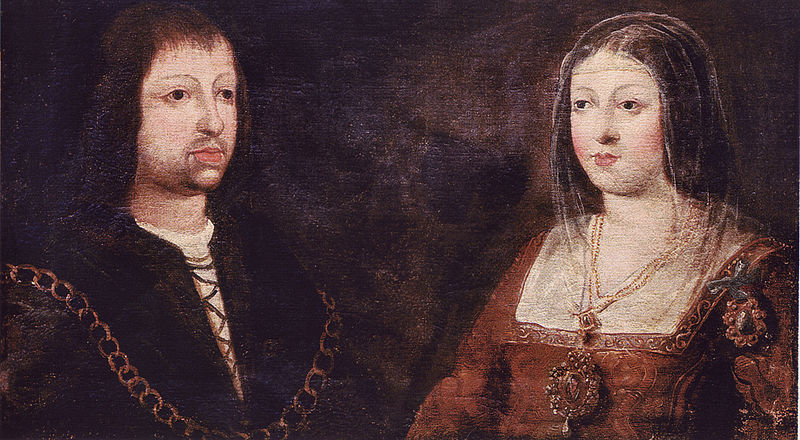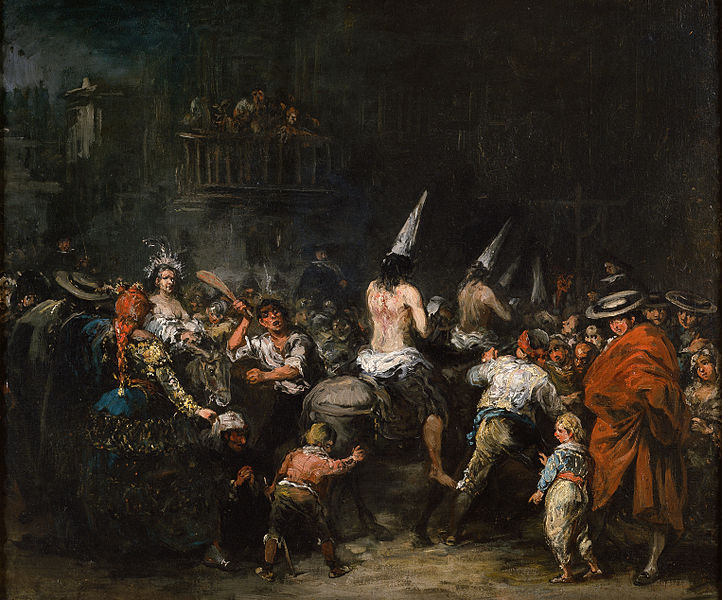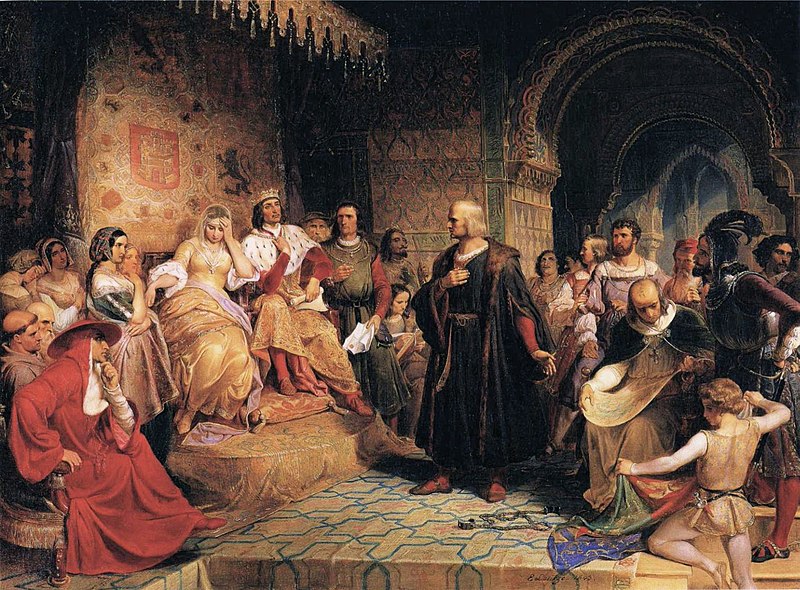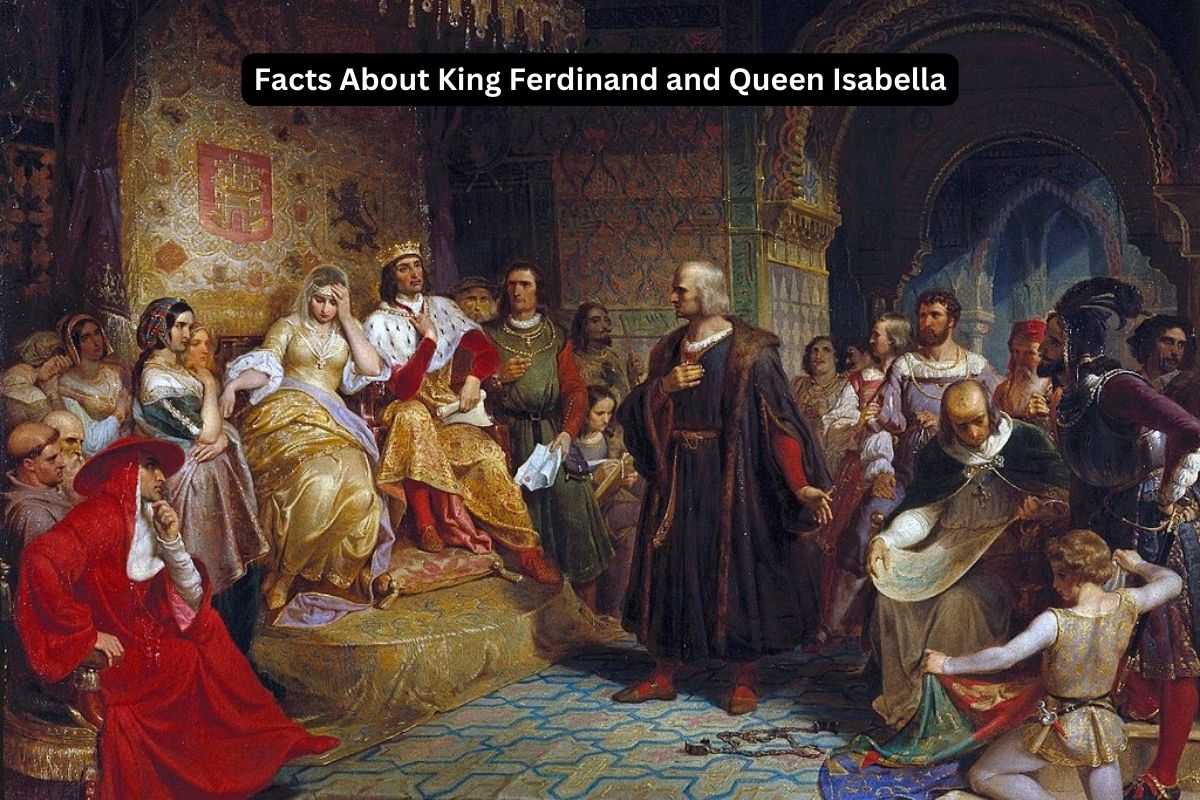The reign of King Ferdinand II of Aragon and Queen Isabella I of Castile, spanning from 1474 to 1516, marked a pivotal period in Spanish and world history. Their marriage united the powerful kingdoms of Aragon and Castile, laying the groundwork for the unification of Spain.
Ferdinand and Isabella’s rule saw significant achievements, including the completion of the Reconquista, the sponsorship of Christopher Columbus’s voyage to the New World, and the establishment of Spain as a major European power.
However, their reign was also marked by controversy, including the brutal methods of the Spanish Inquisition and the expulsion of Jews and Muslims from Spain.
This article explores the multifaceted legacy of Ferdinand and Isabella, examining their contributions to exploration, diplomacy, and cultural patronage, as well as the enduring controversies surrounding their rule.
King Ferdinand and Queen Isabella Facts
1. Married in 1469, uniting the kingdoms of Aragon and Castile
Ferdinand II of Aragon and Isabella I of Castile were married in 1469 after a lengthy courtship. Their union was not only a personal one but also a political alliance, as it joined the two most powerful Christian kingdoms in Spain, Aragon and Castile.
Also Read: Accomplishments of Queen Isabella
This marriage eventually led to the unification of Spain under a single monarchy. It was a pivotal moment in Spanish history, setting the stage for the consolidation of power and the expansion of Spanish influence.

2. Completed the Reconquista in 1492, ending Islamic rule in Spain
Ferdinand and Isabella’s reign saw the culmination of the Reconquista, a centuries-long campaign to recapture the Iberian Peninsula from Muslim rule.
In 1492, they achieved a significant victory with the capture of Granada, the last Muslim stronghold in Spain.
Also Read: Queens of Spain Timeline
This event marked the end of Islamic rule on the peninsula and symbolized the completion of the Reconquista. The conquest of Granada was a momentous achievement that solidified Ferdinand and Isabella’s position as the rulers of a unified Christian Spain.
3. Sponsored Christopher Columbus’s voyage to the New World
One of Ferdinand and Isabella’s most famous actions was sponsoring Christopher Columbus’s expedition to find a westward route to Asia. Despite initial skepticism from some advisers, Ferdinand and Isabella agreed to fund Columbus’s voyage.
In 1492, Columbus set sail with three ships: the Nina, the Pinta, and the Santa Maria. His journey across the Atlantic Ocean led to the discovery of the Americas, a monumental event that would reshape world history.
Ferdinand and Isabella’s support for Columbus’s expedition played a crucial role in initiating the Age of Exploration and expanding Spain’s global reach.

4. Established the brutal Spanish Inquisition in 1478
Ferdinand and Isabella established the Spanish Inquisition in 1478, with the primary aim of maintaining religious orthodoxy and unity in their newly unified kingdom.
The Spanish Inquisition targeted individuals suspected of heresy, including Jews, Muslims, and converts to Christianity who were suspected of practicing their former faith in secret.
The methods employed by the Spanish Inquisition were notoriously harsh, including torture and executions, and it instilled fear throughout Spain.
While initially intended to root out heresy, the Spanish Inquisition also served political purposes, helping to consolidate the power of the monarchy and eliminate perceived threats to their authority.
5. Issued the Alhambra Decree in 1492, expelling Jews from Spain
In 1492, Ferdinand and Isabella issued the Alhambra Decree, which mandated the expulsion of all Jews from Spain unless they converted to Christianity.
This decree came after years of discrimination and persecution against Jews in Spain, culminating in their forced expulsion from the country. Those who chose to convert faced suspicion and often continued to face discrimination.
Similarly, Ferdinand and Isabella also expelled Muslims who refused to convert to Christianity, completing the process of religious purification known as the Reconquista.
These actions had profound consequences for Spain, leading to the loss of a significant portion of its population and contributing to its economic and cultural decline.
6. Supported arts and culture despite their strict religious policies
Despite their harsh policies toward religious minorities, Ferdinand and Isabella were also patrons of the arts and culture. They supported various cultural endeavors, including the commissioning of artworks, the construction of magnificent palaces and cathedrals, and the establishment of universities and cultural institutions.
One of their most notable cultural achievements was the sponsorship of the first voyage of Christopher Columbus, which opened up a new era of exploration and cultural exchange between Europe and the Americas.
Despite their reputation for religious intolerance, Ferdinand and Isabella’s reign also saw significant developments in literature, architecture, and the sciences, contributing to Spain’s cultural richness and legacy.

7. Their daughter Joanna’s marriage sparked the War of the Castilian Succession
After Isabella’s death in 1504, a succession crisis ensued. Ferdinand contested his daughter Joanna’s right to rule Castile, leading to the War of the Castilian Succession (also known as the War of the Communities of Castile).
This conflict arose due to Joanna’s mental instability and Ferdinand’s desire to retain control over Castile. The war lasted from 1510 to 1516 and ended with Ferdinand’s victory, allowing him to retain control over Castile until his death in 1516.
However, Joanna’s son, Charles, eventually inherited the crowns of both Castile and Aragon, becoming Charles I of Spain and the Holy Roman Emperor Charles V.
8. Skilled diplomats who forged alliances through marriages and treaties
Ferdinand and Isabella were skilled diplomats who understood the importance of forging alliances and maintaining a balance of power in Europe. They formed strategic alliances through marriages, such as arranging marriages for their children with other European royalty.
Additionally, they negotiated treaties and alliances with other European powers, including France and England, to secure their interests and maintain stability within Spain and on the broader European stage.
9. Signed the Capitulations of Santa Fe, granting Columbus privileges
Before sponsoring Christopher Columbus’s voyage, Ferdinand and Isabella signed the Capitulations of Santa Fe with Columbus in 1492.
This agreement granted Columbus significant privileges and titles, including the titles of Admiral of the Ocean Sea, Viceroy, and Governor-General of all the lands he discovered.
The capitulations also entitled Columbus to a share of any riches he found and provided him with considerable authority over the territories he explored, laying the legal groundwork for Spanish colonization in the Americas.
10. Their reign laid the foundation for Spain’s emergence as a major European power
Ferdinand and Isabella’s reign had a lasting impact on Spain and world history. Their marriage united the kingdoms of Aragon and Castile, laying the foundation for the modern nation of Spain.
They completed the Reconquista, ending centuries of Muslim rule in Spain, and sponsored Christopher Columbus’s historic voyage, leading to the European colonization of the Americas.
However, their legacy is also marked by their harsh policies, including the establishment of the Spanish Inquisition and the expulsion of Jews and Muslims from Spain.
Despite these controversies, Ferdinand and Isabella’s reign played a significant role in shaping the course of European and world history, leaving behind a complex and enduring legacy.
